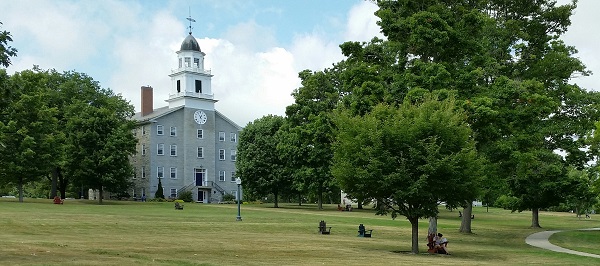It’s go time. Finally. After all the college talk and the endless onslaught of direct mail from every college under the sun. After the campus visits and the standardized tests and the application essays. After the financial aid forms and the housing forms and the health forms. After the icebreakers and orientation trips and alcohol programs and speeches from presidents and deans and too many other people to keep straight. After all the stuff that came before and paved the way for you to go to college. At long last, classes are starting.
Oh yeah, classes. Remember classes?
With everything that happens between high school graduation and your first college class it is easy to lose sight of the fact that the classes are why you go to college in the first place. And, as you have, or quickly will find out, college classes are both different and more demanding than high school classes.
So with that in mind, here are a four academic dos and a don’t for you to consider as you settle into college.
Do: Go to class. I know. It’s hard to imagine that searing insight and advice like this is available for free on the internet. Sure, the idea that you should go to class if you want to do well academically seems fairly obvious. But here’s the thing. It’s really easy not to. You were up late hanging out with all your new friends and the professor doesn’t take attendance in that Tuesday morning econ class with 100 students in it, so what the heck? You can just hit snooze and get the notes from someone else. No biggie. And when nothing bad happens – no terse message from the prof, no summons to the dean’s office, and Sam lets you copy his notes – it’s even easier to do the next time. And the time after that. Next thing you know, you are lost in the class, you bomb the first paper, and messages from the professor and the dean actually do start appearing in your inbox.
Do: Talk to your professors out of class. Okay, this is one that may appear to be easier or more difficult depending on the size and type of college you attend. But professors and/or teaching assistants (TAs) post office hours at all colleges and you should make a point of going. Introduce yourself. Ask questions. Talk about the reading. Obviously, if you are struggling in a class or don’t fully understand an assignment, speaking with your professor (or TA) is essential. But the truth is that getting to know your professors and talking with them privately about course material is always a good thing that will enhance both your understanding of the class and the quality of your college experience. Building relationships with faculty can also prove very helpful down the road when you are looking to secure internships, research positions, and jobs.
Do: Find your own private place to study. Find a nook in the library, or an empty classroom, or a study lounge in your residence hall that no one else ever seems to use. Wherever. Just find a place other than your room where you go to study, and go there every day. In high school, many students used their bedrooms as their primary study space so they assume that their dorm room will work just as well in college. Yeah, not so much. Let’s face it, residence hall rooms are terrible places to study. There are distractions galore all around you. TV’s, computers, video gaming systems, music (both recorded and whatever guitars, keyboards, harmonicas, etc. that are in close proximity), and of course the distraction to end all distractions, your 25 new best friends just down the hall or upstairs waiting for you to pop in and fritter away two hours of time that you planned to be studying. So find a place that is quiet and away from disruptions where you can put in your study time, and then go hang out with your friends.
Do: Take notes by hand. Put away the laptop. Research shows that you learn better and retain more when you take notes by hand rather than on your laptop or tablet. Because typing is so much faster, students who take notes that way tend to transcribe what is being said verbatim. But because writing notes by hand takes longer, students have to synthesize what is being into shorter phrases to keep up. This requires more thought and a better grasp of the material which facilitates better learning and retention.
Don’t: Procrastinate. Okay, everyone does it sometimes. You’re out of clean socks but you just can’t get motivated to deal with the laundry room so you recycle the pair you wore yesterday and promise yourself you’ll do the washing tomorrow. That’s not what I’m talking about. I’m talking about looking at the syllabus for your history class, seeing that the first mid-term isn’t until October 12 and the first paper isn’t due until November 3, and deciding that you don’t have to do any of the reading for a few weeks. No problem. You take good notes in class and your orientation leader’s roommate told you the material from the reading isn’t that important anyway. So, you spend September getting really good at FIFA 2016 and making fun of your roommate for spending so much time in the library. But when October rolls around you end up trying to skim five weeks of reading in three nights, get a 27 on the first exam, and make up some lame excuse about how the mid-term was totally unfair when you explain to your family why you are dropping the class right after October Break. Your school work is like the old Nike ads: Just Do It!
Okay, 960 words is plenty. Break’s over. Time to get back to the books.
